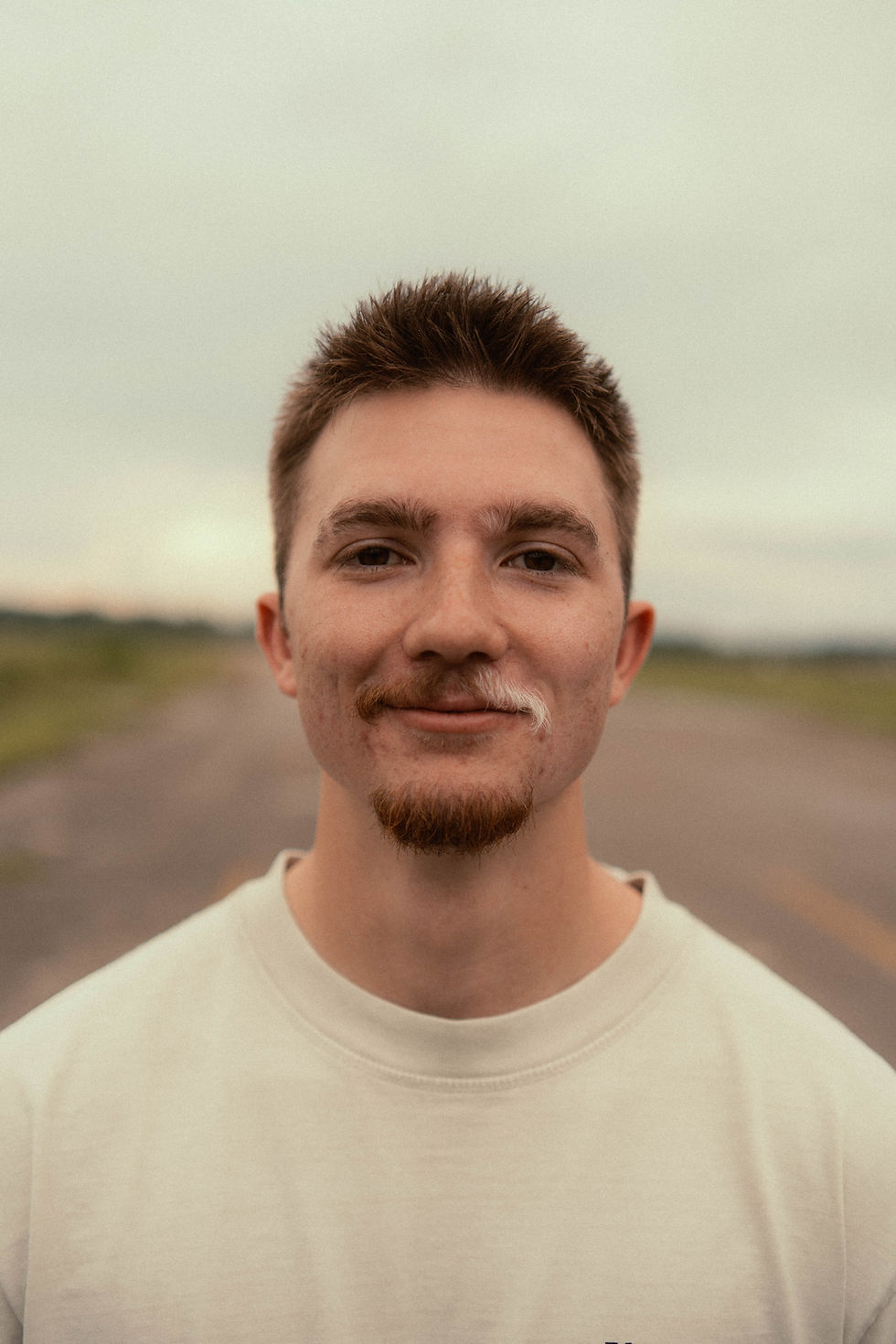Bones Owens and Yelawolf Ride the Line Between Sin and Salvation on "Best Western"
- Victoria Pfeifer

- Sep 14
- 3 min read

Bones Owens isn’t just dropping an album; he’s dropping a whole damn fever dream. His new 15-track record, Best Western (out September 19), feels like stumbling out of a dive bar at 3 a.m. with guilt on your chest, whiskey in your blood, and the devil daring you to keep walking.
This thing rips through blues ballads, road-worn anthems, gospel-soaked confessions, and punk grit with zero apologies. Owens, Missouri-born and Nashville-seasoned, doesn’t just wear his influences, classic rock, southern blues, garage punk, gospel, even hip hop; he bleeds them into something that sounds both timeless and post-apocalyptic.
Produced by Owens himself, the record brings in heavy hitters like drummer Julian Dorio, Relient K’s Matt Thiessen, and longtime co-conspirator Yelawolf. The result? Raw, unpolished, and brutally human.
The title track, “Best Western” featuring Yelawolf, hits like a cinematic showdown. Part myth of the Wild West, part modern war vet gone rogue, it’s a dark, sprawling tale that crashes into a mid-song Yelawolf verse like gunfire in the desert. The idea was sparked in a Georgia hotel of the same name, where Owens and Yelawolf were holed up while filming the western Day of Reckoning. What came out is pure outlaw energy, a story that feels as dangerous as it does alive.
Best Western is the kind of record that doesn’t ask for your attention; it kicks down the door, pours itself a drink, and dares you to keep up.

The title track “Best Western” with Yelawolf is a standout moment. How did that collaboration take shape, and what made it feel like the centerpiece of the record?
Wolf and I have a long collaborative history. A decade ago, I was co-writing songs on his records and touring around the world with him as his guitarist. It had been a long time since we’d worked in the studio together, and it felt like it was time for that to happen again. I was interested in what it would look like to have him feature on a track for one of my albums this time around. We talked about it, and on one of the last days I had booked in the studio, he came in, and the song took shape within a few hours. It was just like old times.
You produced this album yourself for the first time. What challenges and freedoms came with taking full creative control?
It was a lot of work. I knew it would be. There is no such thing as “easy” days in the studio when you’re playing most of the instruments and self-producing the record.. So I would say staying fresh and not getting burned was the main challenge. And trying to remove yourself from time to time and view everything from afar, keeping a proper perspective on the album is a challenge. Freedoms, I don’t know… I guess having the ability to make a record 100% your own way is about as free as you can get in this industry.
The themes of sin, redemption, and survival run through the album. How do those tie back to your roots in Missouri and your life on the road?
Those themes exist everywhere at all times. Sin and redemption were learned and engrained from a young age.. turns out many of those cautionary tales I learned in bible school as a kid have become real life experiences in adulthood. I’ve always been surrounded by people who worked for what they had.. I learned that work ethic as a kid and have carried it over into everything I do now. Survival and self-preservation are a daily part of the road-dog life that goes hand in hand with being a touring musician.
Best Western pulls from blues, punk, classic rock, and even hip hop. How do you approach blending so many influences without losing your core identity?
I don’t think I really think about it.. I try to just do what feels authentic to myself. Sure, I like a variety of styles of music, but they’re all pulling from similar core influences if you peel back enough layers.
You’re known for riding your Harley to shows. How does that nomadic, outlaw lifestyle feed back into the music you write and perform?
I guess your environment bleeds into your art.. If I find myself constantly living that nomadic life, there’s no other choice but for it to feed into the type of songs I’m creating. What comes out is like a soundtrack for my life, and for other people living like me, or even for people who work in a cubicle but wish they could be on their Harley instead. For all the difficulties of living this way, I try not to take for granted that I’m getting to live many people’s dream life.


